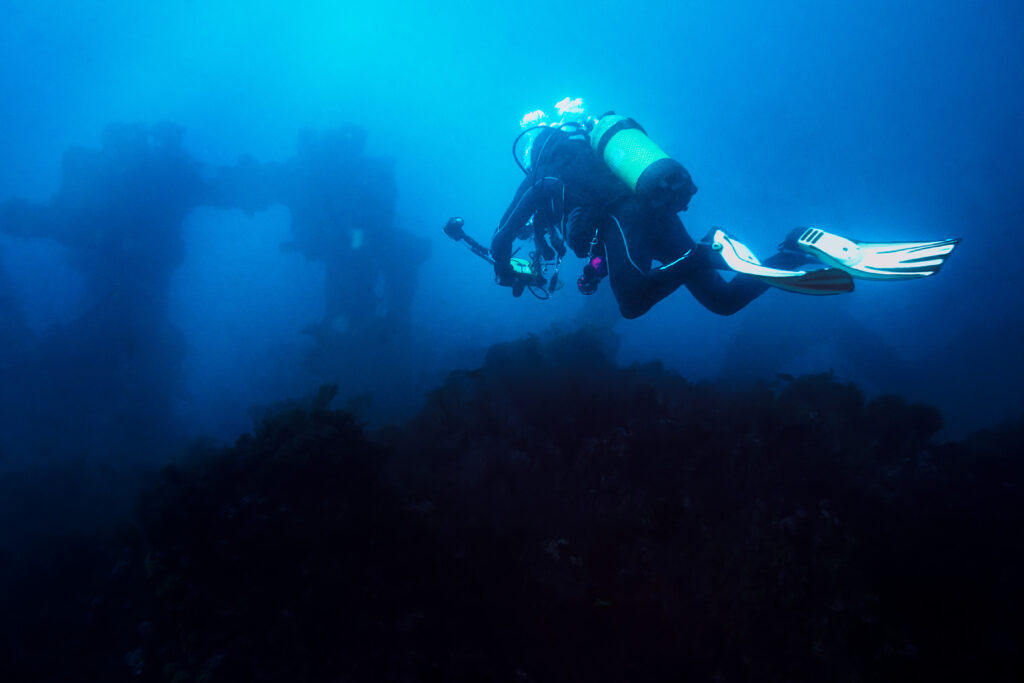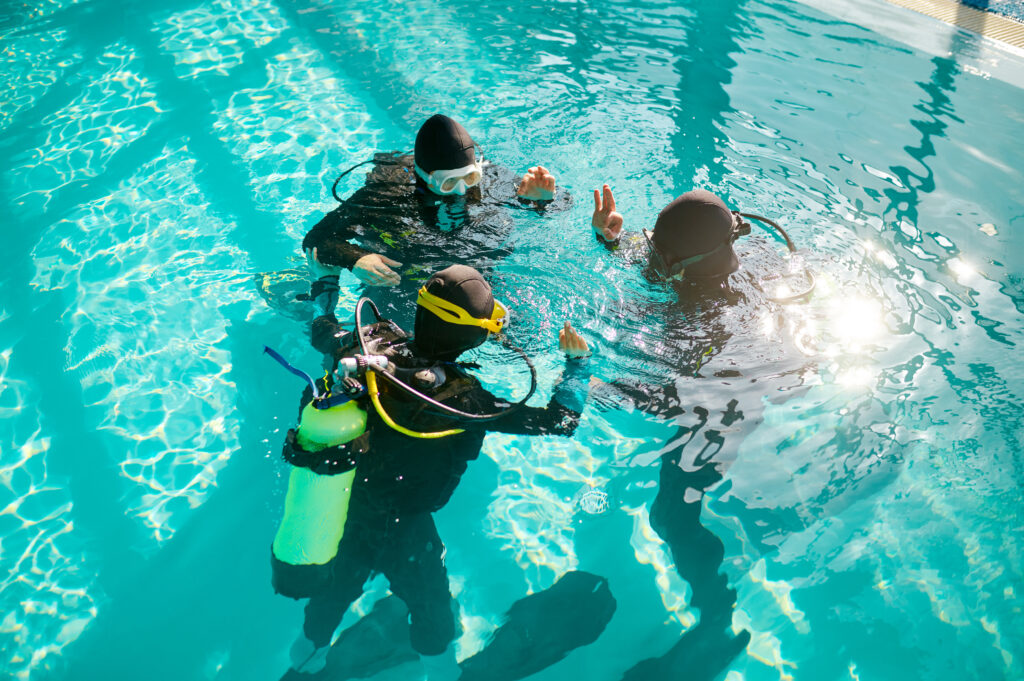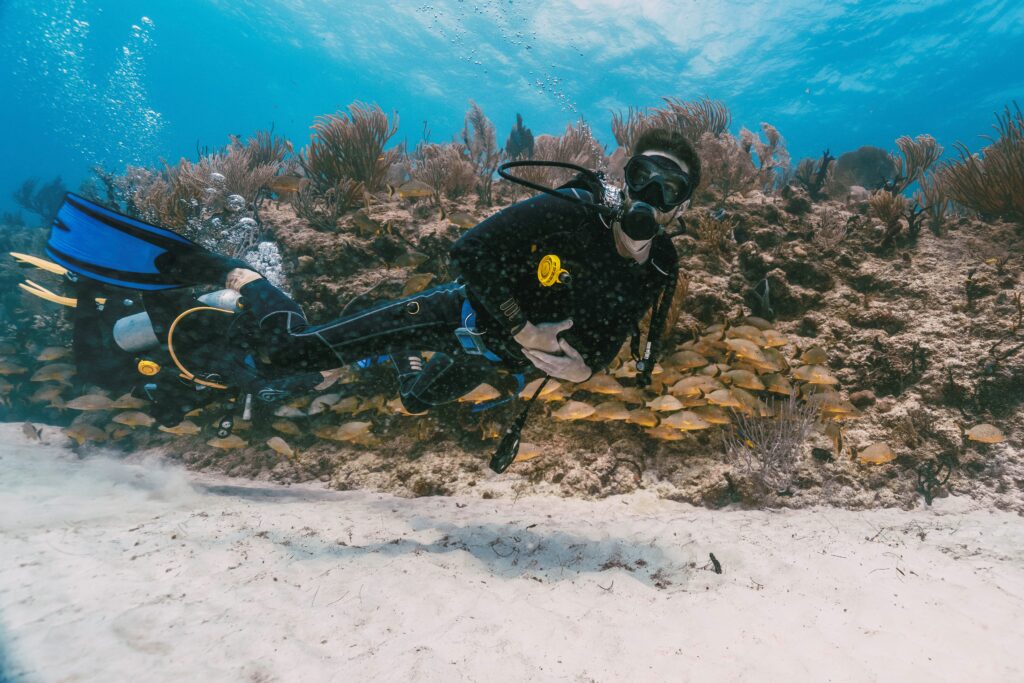What is a Trim Weight?

A trim weight is a weight specifically designed and used by scuba divers to improve their underwater buoyancy and body positioning, promoting a horizontal orientation during a dive. By adjusting the location and amount of these weights, divers can ensure a balanced and streamlined profile underwater.
What is Deep Diving?

Deep diving is a specialized category of scuba diving that involves descending beyond 18 meters (60 feet) underwater.
What is a Confined Water Dive?

A confined water dive is a type of scuba diving activity that takes place in a pool or other shallow, current-free underwater environment.
What is a Scuba Diver?

What is a Scuba Diver? A scuba diver is a person who engages in the recreational or professional activity of swimming underwater using SCUBA equipment. The term “scuba” is an acronym for “self-contained underwater breathing apparatus,” which allows scuba divers to breathe comfortably beneath the water’s surface while exploring the aquatic world at their leisure. […]
What is Absolute Pressure in Scuba Diving Context?

Absolute pressure, a term frequently used in the field of scuba diving, refers to the total static pressure at a particular point. It is a vital concept that divers need to understand and appreciate to ensure safety during their underwater adventures. In technical terms, absolute pressure is the sum of the atmospheric pressure and the pressure due to any fluid column above the point of measurement. It is always measured relative to a perfect vacuum, which is devoid of all matter and hence bears a pressure of zero.
What is Arterial Gas Embolism (AGE)?

Arterial Gas Embolism (AGE) is a potentially fatal complication that can occur during scuba diving, characterized by gas bubbles entering the arterial circulation. When these gas bubbles block blood vessels, particularly in the brain or heart, it can lead to immediate symptoms and rapid clinical deterioration.
What is Water Pressure when Diving?

Water pressure is a crucial concept in scuba diving, defined as the force per unit area exerted by the weight of water. The weight of the water column above a certain depth creates this pressure. This pressure is not just from the top down, but it is exerted equally from all directions. The deeper a diver descends, the greater the water pressure exerted on their body.
What is Hyperventilation?

Hyperventilation refers to a state of rapid or deep breathing that exceeds the body’s need for oxygen. This condition leads to a significant decrease in carbon dioxide levels in the blood, causing various physiological effects. Understanding hyperventilation is crucial for scuba divers as it can profoundly impact their safety and overall experience underwater. Divers need to be aware of the causes, effects, and preventive measures related to hyperventilation to ensure safe and enjoyable diving experiences.
What is the Frenzel Maneuver?

The Frenzel Maneuver is a specialized technique used primarily in scuba diving and freediving to equalize pressure in the middle ear. Named after the German Luftwaffe commander Hermann Frenzel who developed it during World War II, this maneuver has become a crucial skill for divers. Proper equalization prevents discomfort and potential damage to the ear caused by changes in pressure during descents and ascents in water. The Frenzel Maneuver involves closing the vocal cords and using the tongue to compress air into the Eustachian tubes, allowing for more effective pressure regulation compared to other methods.
What is Narcosis?

Narcosis, often referred to as “the rapture of the deep,” is a condition that affects scuba divers when they descend to certain depths underwater. It is a state of altered consciousness caused by the pressure of breathing gases at depth. Understanding narcosis is crucial for divers to ensure their safety and well-being while underwater. This condition can impact a diver’s mental and physical capabilities, leading to potentially dangerous situations if not recognized and managed properly. As such, it is a topic of significant importance in the field of scuba diving, both for recreational and professional divers.
